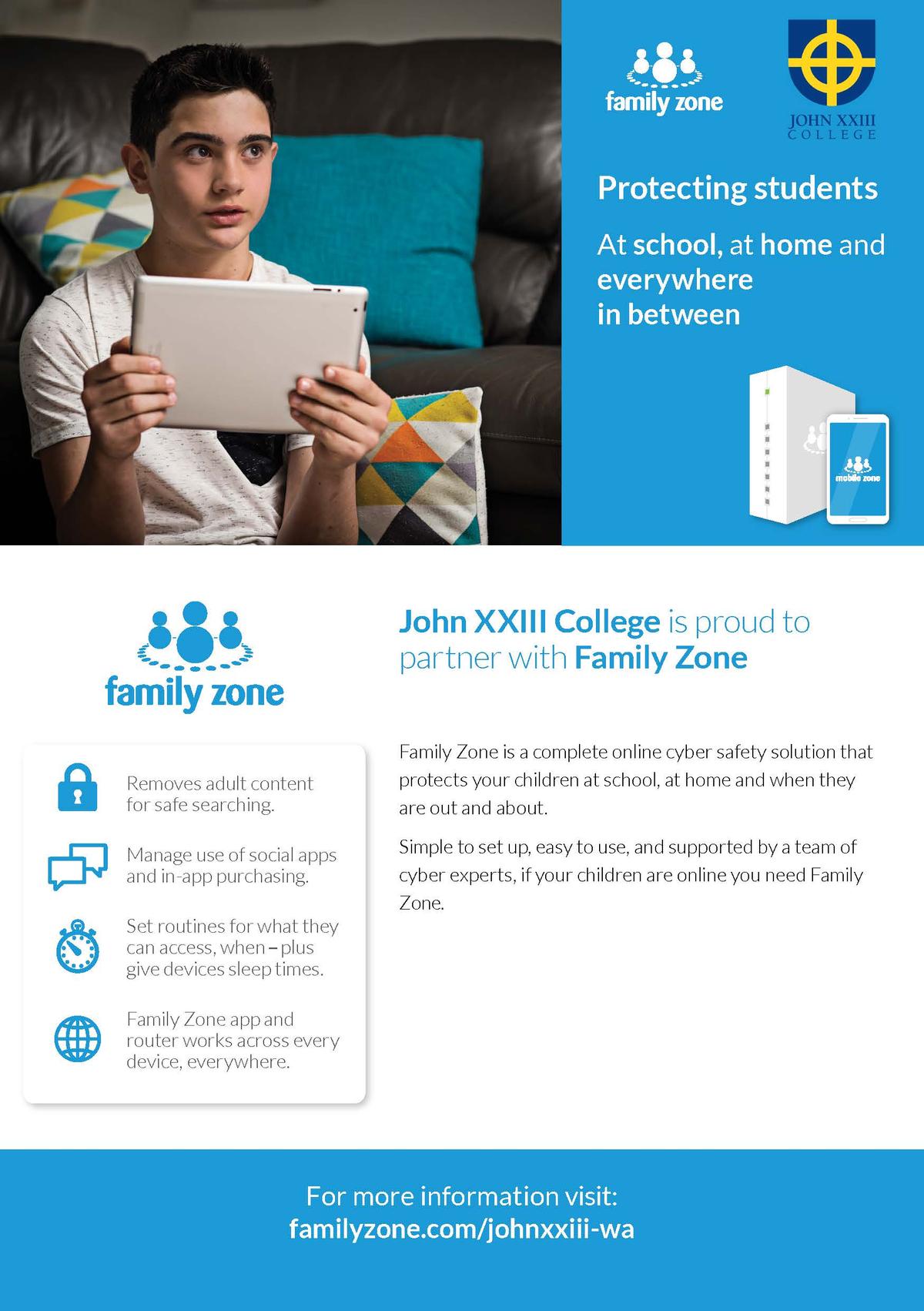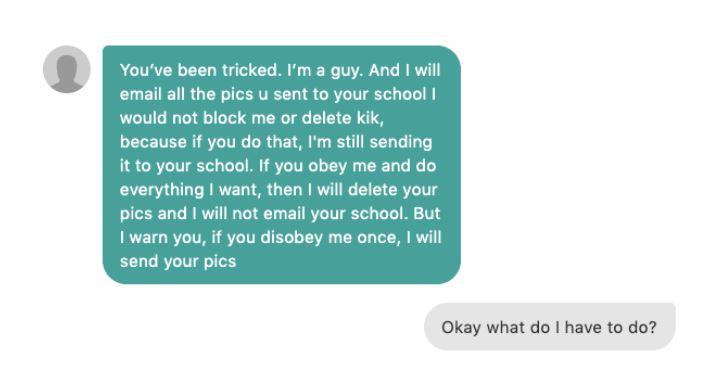Family Zone & Cyber Safety

Download Family Zone
Make use of the Family Zone Accounts which we are offering to John XXIII College families for free, as part of our College contract negotiations until April 2020.
By setting up a private Family Zone account, you can apply age-appropriate parental controls on every device your child has access to, in any location. To find out more visit https://www.familyzone.com/johnxxiii-wa
Family Zone Webinar recordings
For those that were unable to make the Family Zone webinars, we have recorded both sessions for you to view in your own time, and they are available here: https://www.familyzone.com/johnxxiii-wa
Webinar topics are:
- Getting Started with Family Zone
- Advanced with Family Zone
SEXTORTION: Is your child more vulnerable than you think?
Online games like Fortnite, Minecraft and Roblox are fun for kids - and can stimulate creativity and collaboration. So where’s the danger in that?
The answer, research shows, is that apps like these have become “virtual hunting grounds” for predators.
The content of your children's favourite online games may be harmless - even educational. But it’s essential for parents to understand that the internet is an ecosystem, and no multiplayer game is an island.
Virtually every popular online game today includes chat features that encourage kids to a deeper exploration of their favourite gameworld - whether on YouTube or Twitch or another social or streaming app. And that’s where things can get scary.
Because predator abuse is unlikely to happen within the game itself. Instead, abusers use popular games as a gateway to lure kids on to unmoderated chat and social apps - where they will proceed to blackmail them into sending nudes and sexually explicit videos.
The term for this horrifying abuse is “sextortion,” and it has been identified by the US Justice Department as “by far the most significantly growing threat to children.”
How sextortion happens
Typically sextortion begins when a predator, often posing as another child, befriends a child through the chat feature of a gaming site, gaining trust through false confidences about personal hardship and worries.
Gifts of in-game currency may be sent - Fortnite’s V-Bucks, for example - to cement the relationship.
Kids will then be encouraged to continue the connection on a chat app like Kik Messenger, Skype or Omegle, or other gamers’ hangouts like Twitch and Discord.
Omegle in particular is notoriously infested with predators and, as a recent New York Times report noted, “users need look no further than the site’s home page to find that out.
“‘Predators have been known to use Omegle, so please be careful,’ the site advises under a banner that exclaims ‘Talk to strangers!’”
Once trust has been established, child victims are encouraged to self-disclose personal details. From there, they will be gradually subjected to “de-sensitizing” sexual terms and imagery.
Only then will the predator moves in for the kill, demanding naked pictures and videos and threatening to expose the child to family and friends if they fail to comply.
Death threats and worse
The blackmail can quickly escalate to death threats, say security experts. “If they don’t send another picture, they’ll say: ‘Here’s your address - I know where you live. I’m going to come kill your family.”
According to FBI research, more than a quarter of kids victimised in this way have committed or attempted suicide.
“These virtual spaces are essentially hunting grounds.”
- Mary Anne Franks, University of Miami School of Law and president of the Cyber Civil Rights Initiative, a nonprofit group dedicated to combating online abuse.
What can parents do?
There are no easy answers, say cyber experts. Regular and close vigilance whenever kids are online is essential, as are parental controls like Family Zone that empower parents to manage screen-time in a granular way.
Parents can turn the chat function off on games like Fortnite, Roblox and Minecraft. But in many cases connecting with other (legitimate) players is actually at the core of gameplay. What’s more, turning the function back on again is a no-brainer for tech savvy kids.
Keeping devices out of bedrooms - and blocking internet access after 10 pm - are probably the two most effective ways to keep kids safe.
Experts also warn that parents need to react carefully if their child has had an encounter with a predator. Reacting by removing devices, or banning them from games or social media, may seem like a safe response.
But taking punitive steps like these - even from the best and most understandable motives - may have the opposite effect, driving kids deeper into secrecy and danger.


